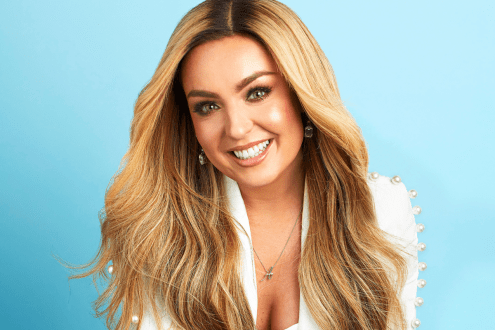How to tell if you’re stressed
The goal is to work with stress, not be stress-free. It all starts with awareness.

“I want to have less stress in my life.”
I get it, and it’s a nice idea. But stress-free isn’t the goal. It’s unrealistic.
Unless you want to withdraw and stay in your comfort zone, minimising your experience of, and impact on the world.
Why is “stress-free” an unrealistic goal? Because we are hard-wired to scan for threats to our life. Sounds helpful, but there’s a twist. Your brain cannot distinguish between threats to your physical body and threats to your ego. That means everything from the ping of a notification and that curt email from your colleague to redundancy and the possibility of Trump as president for another four years is a classed as a threat and triggers a stress response. Some are more real than others.
We have stone-age brains guiding us in a space-age world.
Signs of burnout are evident in almost all conversations I’m having right now – friends, family and clients. Given the year we are having this is no surprise. Your survival-focused brain believes that you need to be seriously adaptive right now – it doesn’t know what is coming next, but it knows you need to be ready to respond.
Adaptive mode – aka ready for fight, flight or freeze – is a high energy, high-stress state. So you can respond, energy is diverted away from the part of the brain responsible for complex problem solving, empathy and connection. Stress reduces your capacity to focus, be creative and respond to challenge and for showing compassion to others (and yourself).
That’s why your goal needs to be to understand what your stressors are – big and small, so you can work with them.
Stress is extremely personal. What stresses me out barely registers with my husband, and vice-versa (helpful in our partnership; generally, one of us has perspective, optimism and some ideas about what to do or not do). Awareness is the first step to being able to decide how you are going to work with your stress so that you can get the right tools in place, the ones that work for you (again, this is super personal).
How do you increase awareness about your stressors? Here are a few questions that are worth exploring:
What are my tendencies under stress?
- Do you procrastinate? Do you push yourself too hard? Do you withdraw? Do you freeze?
How am I defining this experience?
- Positively or negatively? Do I view it as a growth opportunity or a risk of failure?
What new behaviours can I try?
- Do I need to build in time to think or take short breaks into my day? How do I reframe my experience to the positive? Do I need to connect with my support system?
Knowing what your tendencies are when you are stressed, and when things are challenging is an essential skill – first and most importantly, to protect and bolster your mental health and protect against burnout. Secondly, it’s necessary to your career success.
If you want to lead others, you have to first lead yourself.
I help people who want to make progress even when it’s challenging. The kind of progress that aligns with who you are, what matters most to you and where you want to go (not what you’ve been told success looks like and not at the cost of your health and relationships).
Find out more about how I help professionals to achieve the career success they want and deserve here.
Caroline Rae
Executive Performance Coach
Caroline Rae is an ICF accredited executive performance coach, and career mentor, working with ambitious professionals to achieve the success they want and deserve.



